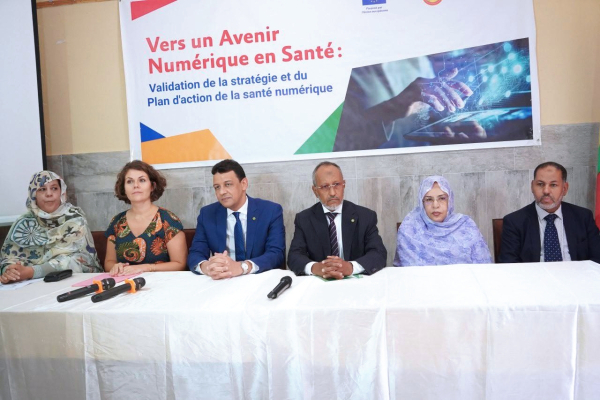Africa continues to grapple with some of the world's most pressing health issues. In this context, information and communication technologies (ICT) could be a game-changer in improving health and healthcare access across the continent.
Mauritania is set to implement a national digital health strategy by 2030. The draft document was presented on Tuesday, October 29, in Nouakchott at a workshop for review and adoption, overseen by Health Minister Abdallahi Ould Wedih and Minister of Digital Transformation and Administration Modernization Ahmed Salem Ould Bedda. Supported by partners like the European Union and the World Health Organization (WHO), this project aims to modernize healthcare services by integrating digital solutions.
“Digital health is an emerging strategic priority that will significantly strengthen national health policies and the National Health Development Plan (PNDS) to achieve universal healthcare coverage,” said Abdallahi Ould Wedih.
This initiative aligns with the electoral agenda of President Mohamed Ould Cheikh El Ghazouani, who considers digitalization the primary driver of the country’s economic modernization. By 2030, the administration aims to digitize key sectors of the economy through new technologies.
The e-Health strategy being introduced in Mauritania is expected to transform the healthcare sector by providing equitable access to quality health services, expanding coverage in remote areas, and enabling remote consultations through telemedicine. It will also help streamline healthcare costs.
According to a report published last year by McKinsey & Company, widespread adoption of digital health tools—such as teleconsultations, electronic medical records, and mobile apps for chronic disease management—could increase efficiency in African healthcare systems by up to 15% of total spending by 2030. This potential underscores the significance of digital transformation in Mauritania’s health sector.
Samira Njoya



















